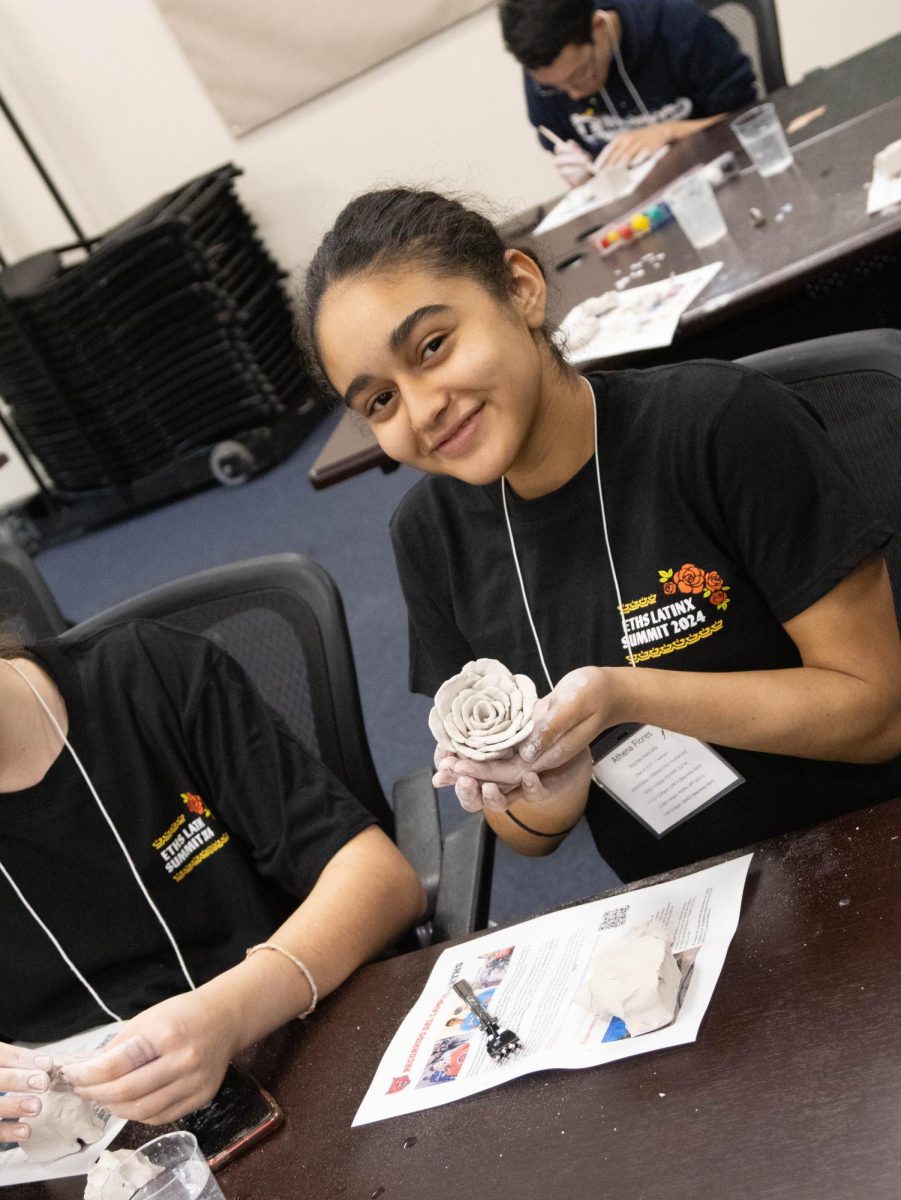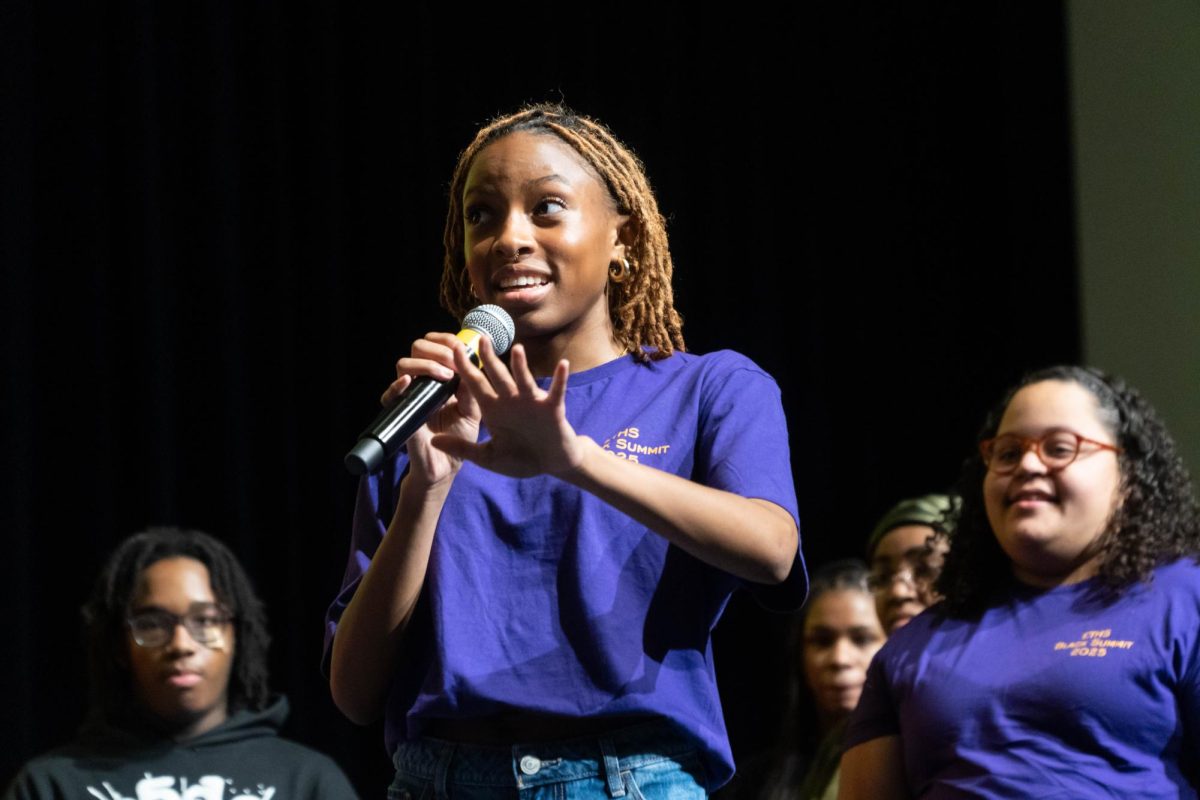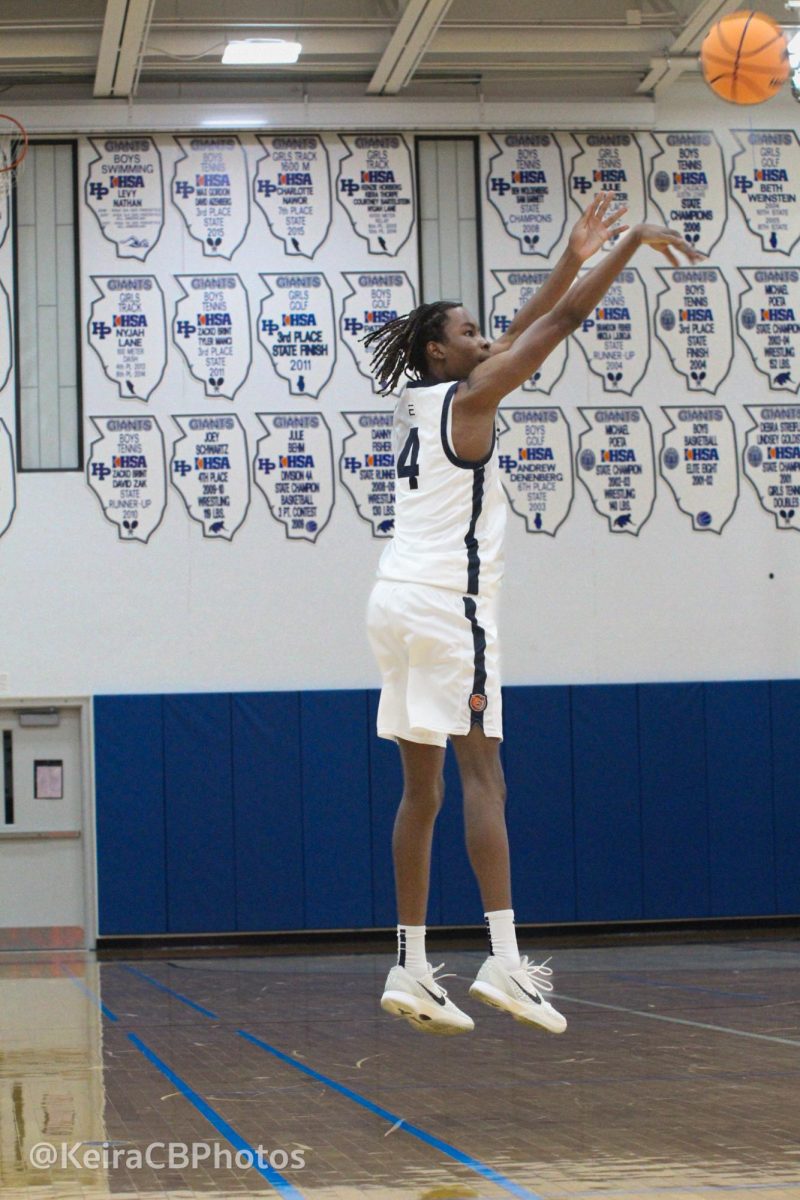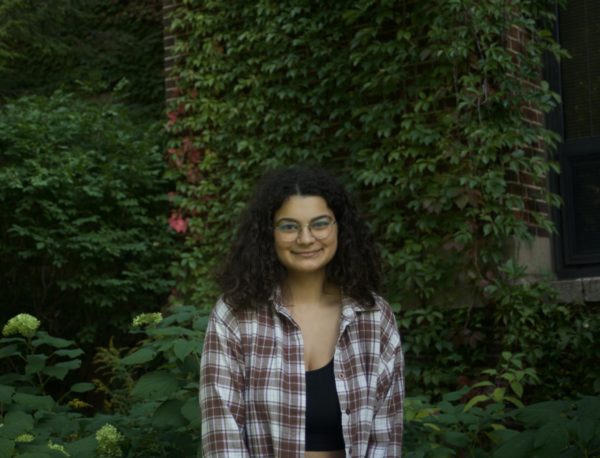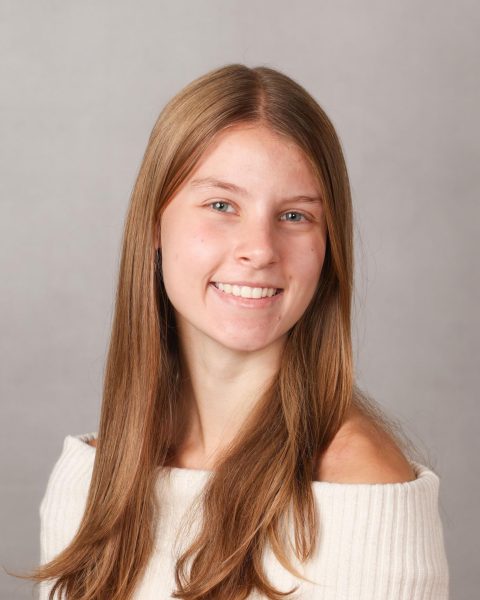On Monday, October 14th, ETHS celebrated Indigenous Peoples Day. The last Monday in September has been designated Indigenous People’s Day by the state of Illinois since 2017. Though Illinois still recognizes Columbus Day, many have pushed to officially shift the name from Columbus Day to Indigenous People’s Day alone. In 2020, Illinois lawmakers renewed the effort to change the name, though efforts have since stalled.
Throughout the day, ETHS held a number of ceremonies, invited several guest speakers—including ETHS alum—and concluded the event with a community-wide Powwow. The day was not only focused on celebrating Indigenous culture but also shedding light on the issues Indigenous people have faced for centuries.
One workshop was held by ETHS teachers Andrew Ginsberg, Joshua Brown and
Lauren Hamilton. They spoke about resisting settler colonialism by having students work in groups, learning about the different worldviews of indigenous people versus colonizers and watching educational videos surrounding the topic.
“We’re learning about settler colonialism, and every day we still feel the effects of [it]. Our students need to learn about how settler colonialism affects them, from the houses they live in with fences that separate them, to the individual ‘everyone for themselves’ in how we do school, to everyday racism that’s normalized in our world,” said Ginsberg.
Another workshop, led by Sabrina Stark and Allie Hart, discussed the harm of the popularity of having Native American mascots in sports. The session started with a brief mention of the Kansas City Chiefs and became an explanation of how having such a mascot negatively reflects the culture of Indigenous people.
“In the session, I learned the harm that some Native American mascots cause in sports. I’m a huge sports fan; I’ve been watching baseball almost my whole life and I never realized that the tomahawk chop, the [tradition] the Braves do at their games, was harmful,” said senior Felix Euler.
A crucial session held covered Native American activism in Illinois. Led by Cherokee Andrew Johnson and Ojibwe and Navajo ETHS alum Nimkii Curley, the workshop discussed land acknowledgment, and the vibrant population of Native Americans in Illinois—with 280,000 residents in 150 tribe nations.
“I believe attending this session was important because it helps people understand the existing struggles so we can better advocate alongside [Indigenous people],” said ASL teacher Michelle Corrigan.
Johnson and Curley’s session was a poignant one, as many of the presenters were white or non-Indigenous. Both speakers shared stories of the times they faced oppression because of their heritage, and how it was reflected in the past and their present.
What many students can attest to after participating in these workshops was the importance of celebrating Indigenous People’s Day—through hands-on activities, group work and taking the time to properly educate the school community about Indigenous issues and culture.
“I liked the concept of today and what it represented,” said senior Nathan Kane. “I feel like we’re actually taking on the complicated legacy in a way that honors the perspectives of those on the other side of colonialism, and their fundamental contribution to our history.”




